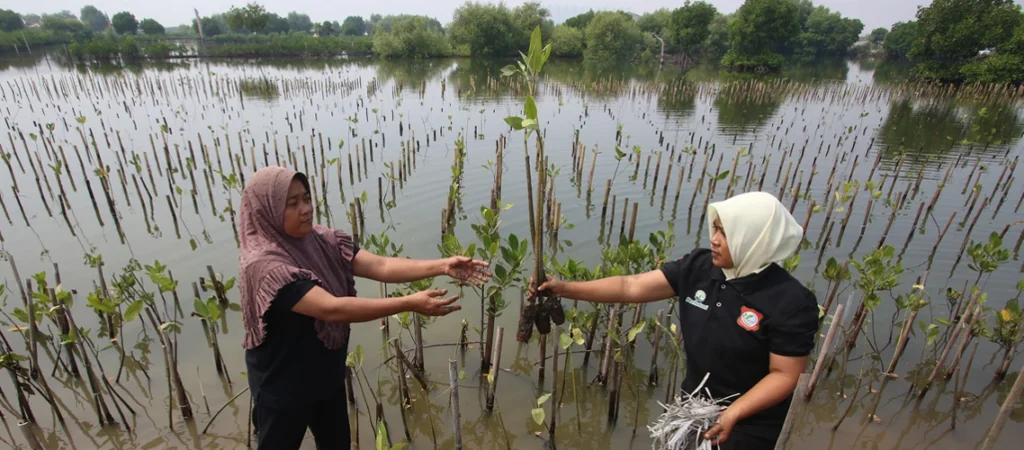
Key Highlights:
First-of-its-Kind Framework: The Climate Bonds Alternative Proteins Criteria is the first dedicated tool for certifying investments in sustainable protein solutions.
Driving Sustainability in Food Systems: Alternative proteins offer a scalable and sustainable way to meet the world’s growing food demand while reducing environmental harm. Alternative protein products perform better than the lowest-emission traditional animal-based options.
Investment Guidance: The Criteria highlight key areas for climate mitigation: upscaling production, encouraging substitution in the market, and improving processes and sourcing.
___________________________________________________________________________
London, 03 April 2025, 09:00 am BST– The Climate Bonds Initiative announces today the launch of its Alternative Proteins Criteria, setting a new benchmark in sustainable finance. This framework provides investors, industry, and policymakers with a science-backed tool to drive meaningful transformation in the food sector.
Livestock agriculture is a major contributor to climate change and biodiversity loss, responsible for 60% of agrifood system emissions and between 2–20% of global greenhouse gas emissions. Despite this, it only provides 17% of global calories and 38% of protein . As a result, shifting away from conventional meat and dairy production represents one of the most impactful climate mitigation strategies in the agrifood system.
By providing a science-backed framework for sustainable finance, these Criteria will help unlock the capital needed to scale alternative proteins, reducing emissions and environmental pressures from traditional livestock agriculture.
These Criteria set clear eligibility requirements for Certification under the Climate Bonds Standard, ensuring that investments in alternative protein production and distribution align with sustainability goals. Applicable to various financial instruments—including Use of Proceeds (UoP) for Green Bonds and Sustainability-Linked Debt (SLD)—this initiative aims to guide investment into a rapidly expanding industry while ensuring meaningful climate impact.
The Criteria cover several alternative protein sources intended for human consumption, including wholefood plant- and fungi-based proteins, traditional plant- and fungi-based proteins, novel plant-based proteins, fermentation-derived proteins, cultivated meat, and blended products.
India Langley, Sustainability Analyst (Agri Food), Climate Bonds Initiative:
“The Alternative Proteins Criteria are the first of their kind in the market, providing a unique framework for both use-of-proceeds and sustainability-linked debt. This framework is designed to guide investment into this rapidly growing sector. With the alternative proteins market projected to reach USD1.1 trillion by 2050, these Criteria offer a critical tool to help scale up the necessary financing for sustainable agrifood system transformation.”
Rosie Wardle, Synthesis Capital / Member of the Alternative Proteins Technical Working Group:
“In assessing sustainability in the food system, alternative proteins are one of the most impactful climate mitigation solutions. We must catalyse more capital into this sector to scale up the industry and to ensure the resilience of our food system, as without these solutions we cannot feed our growing global population within planetary boundaries. I applaud the Climate Bonds Initiative for their leadership in establishing this first-of-its-kind framework to empower the markets to support the further growth of the alternative protein industry.”
Aditi Mukherji, Climate Change Impact Platform / Member of the Alternative Proteins Technical Working Group:
“While animal-sourced foods offer essential protein for children’s growth, overconsumption in high-income countries harms health, biodiversity, and the climate. Meanwhile, intake in low- and middle-income countries remains below optimal levels but is rising rapidly with increasing incomes. Alternative proteins present a sustainable, high-protein solution. The Climate Bonds Initiative’s Alternative Protein Criteria comes at a critical time, aiming to channel green investment into this growing sector.”
As the global demand for sustainable food solutions accelerates, the launch of the Alternative Proteins Criteria paves the way for increased investment in sustainable food solutions that directly support climate goals. With this initiative, the Climate Bonds reaffirms its commitment to fostering a net-zero future and reshaping the way we produce and consume proteins worldwide.
Criteria Document
About the Climate Bonds Initiative: Climate Bonds is the leading international non-governmental organisation mobilising global capital for climate action. We drive the growth of the green and sustainable debt market through science-aligned frameworks including our taxonomies and standards, our Certification, our data and insights, and our provision of expert policy and technical advice. More information on our website here.
About Climate Bonds Standard: It is an overarching science-based, multi-sector standard overseen by the Climate Bonds Standards Board that allows investors and intermediaries to easily assess the climate credentials and environmental integrity of bonds and other green debt products.
Launched in 2011, with periodic updates, the Climate Bonds Standard is the most detailed, climate aligned investment criteria available in the market and provides guidance to issuers, investors, governments and regulators.
About the Alternative Proteins Criteria TWG and IWG.
Climate Bonds Initiative convened a Technical Working Group (TWG) and an Industry Working Group (IWG) Expert Group in 2024 to develop Criteria for this sector. Full membership of both the TWG and IWG can be found here.
